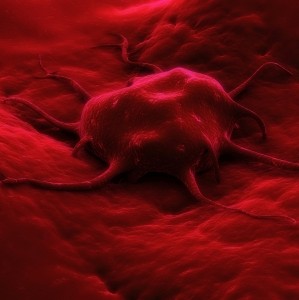Written by Professor Lucia Altucci, Seconda Università degli Studi di Napoli
A main strategy of the drug discovery field is to define novel therapeutic approaches against human disease – including cancer. Clearly, an emerging problem is the potential acquisition of resistance to treatment, even when, a so-called ‘targeted-treatment’ is defined. Very recently, Yujie Tang et al. (Nature Medicine 2014) have suggested a smart, but molecularly well defined, strategy to use epi-based approaches as treatments against a priori treatment-resistant tumours. They indeed discovered that BET bromodomain protein inhibition (see alsoFilippakopoulos P. et a l., Nature 2010) might turn out beneficial against Hedgehog (Hh)-driven tumours (such as basal cell carcinoma and medulloblastomas) even when resistance to the targeted SMO antagonist-based treatment has been acquired. Even though the idea to use epi-based approaches against cancer for chemo-sensitization has been proposed many times, this example offers a molecular explanation of the potential success of this hypothesis, despite in ‘niche’-type tumours. For the future two main concepts will need to be further developed: real application and toxicity.
l., Nature 2010) might turn out beneficial against Hedgehog (Hh)-driven tumours (such as basal cell carcinoma and medulloblastomas) even when resistance to the targeted SMO antagonist-based treatment has been acquired. Even though the idea to use epi-based approaches against cancer for chemo-sensitization has been proposed many times, this example offers a molecular explanation of the potential success of this hypothesis, despite in ‘niche’-type tumours. For the future two main concepts will need to be further developed: real application and toxicity.
Being that BRD-containing complexes are often localised at promoters of key transcription factors, such as c-MYC, BET bromodomain protein inhibition might be effective even in a large cohort of tumours, including in treatment-refractory cancers driven by previously ‘un-targetable’ oncogenes. If proven – and expanded – this hypothesis might modify the treatment and prognosis of refractory tumours in a considerable manner, provided the approach has limited toxicity.
Sam Rose
Latest posts by Sam Rose (see all)
- Raising funds for genetic diseases - 23rd September 2016
- The Epigenetics and Chromatin Clinic - 9th November 2015
- Resurrecting one of the oldest genetics journals - 23rd October 2015
Comments